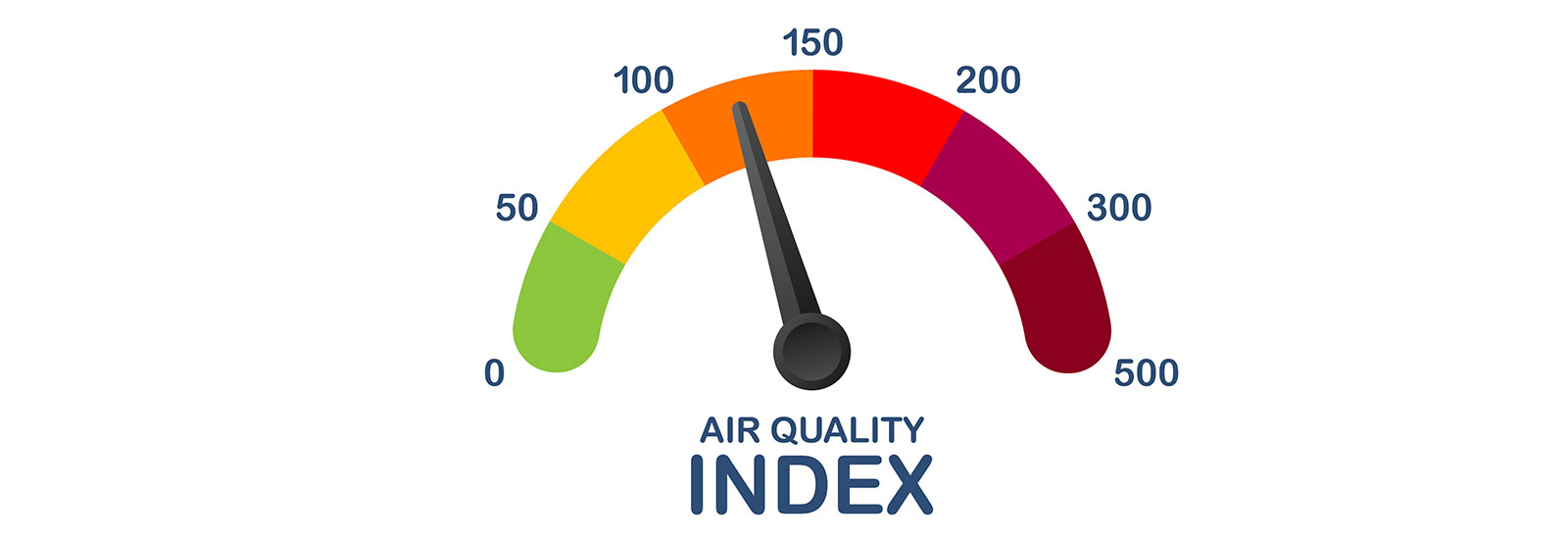Airshed management is the key to achieving national ambient air quality standards

Q : What is air pollution, and when do we scientifically conclude that the air in a geographical area is polluted?
A : Air Pollution is the release of pollutants such as gases, particles, and biological molecules into the air that is harmful to human health and the environment.
When the air quality of a region/area exceeds the National Ambient Air Quality Standards (NAAQS) prescribed by The Central Pollution Control Board (CPCB), we can conclude that the air in that area/region is polluted scientifically.
Q : TERI is one of the pioneering research institutions in India to study air quality. What are the state-of-the-art capacities we have developed to analyse air quality?
A : TERI has developed advanced capabilities to analyse air quality, such as air quality monitoring, Emission Inventorization, source apportionment investigations, and state-of- the-art air quality modelling. TERI has also developed models for forecasting and spatial mapping of the air pollutants of an area. Other than experienced researchers, the group has an air quality laboratory for pollutant monitoring and analysis, and an advanced supercomputing facility for conducting air quality simulations.
Q : How has TERI’s studies and work in the field of air quality influenced policy?
A : TERI has been instrumental in developing research-informed evidence for policy making providing assistance to government bodies for the formulation of state of environment reports and environmental policies, specifically in the field of air quality management. TERI with its active involvement assessed the impact of Govt. of the National Capital Territory (NCT) of Delhi’s “Odd-Even scheme” during 2016 and provided a set of policy recommendations to the state government based on its study findings. The group’s research- based policy recommendations on emergency response to air pollution episodes were recently adopted by the Government of India in the form of Graded Response Action Plan (GRAP) in Delhi. One of the policy recommendations of the group’s latest report on ‘Breathing Clean Air - Ten Scalable Solutions for Indian Cities’ was taken up by Government of India as the first report which recommended national level interventions in the form of programs like NCAP. The group has also been focused on providing state-level policy recommendations through several source apportionment studies which guided state-level regulatory authorities to develop local action plans for control of air pollution and its impacts. NCAP refers to the recommendations suggested under the ‘Source apportionment of PM10 and PM2.5 of Delhi NCR’ for city and regional level mitigation strategies. Also the recommendations suggested in ‘Air quality assessment, emissions inventory and source apportionment study for Bangalore city’ has led to strengthening of city-level air quality management plan. Additionally the group’s capacity building and training programmes for personnel involved in air pollution management enhanced awareness and policy-making capacity in the relevant departments.
Q : What are TERI’s multiple projects across Indian cities in studying air quality?
A : TERI works on addressing concerns related to air quality in India. The research group assesses sectoral energy consumption, growth patterns, and pollution control interventions in urban, industrial, and regional settings using well developed state-of-the-art abilities. TERI seeks to expedite India’s progress towards sustainable development pathways by ensuring abatement of air pollution at both urban and regional scales. Using its air quality monitoring, modelling, and management capabilities, TERI aims to reduce air pollution in India through science-based decision making and implementation. TERI works actively with the government (at the centre, state, and city levels), multi-lateral and bilateral agencies, academia, NGOs, and the corporate sector for carrying out research, suggesting policy interventions, and designing suitable action plans for air quality management. Some of the recent ongoing/completed projects across Indian cities in studying air quality are:
- Strengthening air quality management plans in Indian cities through source apportionment studies (Delhi-NCR, Ludhiana, Patna, Surat, Lucknow, Kanpur, Pune, Nasik, Rishikesh and Kashipur).
Report: Source Apportionment of PM2.5 & PM10 of Delhi NCR for Identification of Major Sources - Cost effectiveness of interventions for control of air pollution in Delhi
- Spatially Resolved Air Pollution Emissions Inventory of India
- Evaluation of modelling techniques for air quality management in Delhi
- Strengthening Clean Air Action Plans of Three Indian Cities
- Scoping and needs assessment related to environmental technologies for reduction of air pollution in three selected cities
- Develop an Air Quality Progress Report (AQPR) for India
- Development of Regional Climate Sustainable Agriculture Plan for India under the support from Tower Research Capital, India
- Scope and Role of Natural Gas in Mitigating Industrial Air Pollution
- Real-Time Source Apportionment and Forecasting for Advance Air Pollution Management in Delhi
- Environmental consultancy for Diesel Locomotive Emission Standards Project for Indian Railways
- Development of Sustainable Biochar Briquette Industry

Q : What are TERI’s latest studies on the air pollution situation as well as interventions required in Delhi?
A : TERI in presently collaborating with IIT-K and IIT-D in doing a real-time source apportionment study for NCR for time to time assessment of the impact of different intervention measures taken to tackle the air pollution issues in the region. Recently completed studies on air pollution situations as well as interventions required in Delhi are:
- Cost effectiveness of interventions for control of air pollution in Delhi
- Evaluation of modelling techniques for air quality management in Delhi
- Source Apportionment of PM2.5 & PM10 of Delhi NCR for Identification of Major Sources
- Assessment of air quality during lockdowns in Delhi
Q : Has TERI undertaken initiatives to educate the public on air quality and pollution? If so, what are they?
A : Yes, TERI has undertaken initiatives to educate the public on air quality and pollution.
TERI has been conducting training programmes for officials of state and central pollution control board officials across the country on various environmental issues since 2009. The TERI philosophy is that all stakeholders in a specific area must be educated in order to enhance air quality. As a result, we’re collaborating with schools and colleges, as well as citizens and policymakers on technical training initiatives.
We conduct media training sessions on how to appropriately cover pollution issues. Training programmes held under CAP India Project were on Control of Air Pollution, Source Apportionment Studies and Preparation of Emission Inventories (2021); Urban Air Quality Management (2021); Air Quality Monitoring and Management (2021); Advance source apportionment methodology and introduction to the Source Finder (SoFi) (2020); Air Quality Management (2020). Awareness programmes conducted under CAP India Project include My City’s Air During Winters (2021), and Restoring Air Quality for Healthy Ecosystem (2021), Are we really aware about air pollution and its impacts? (2021), Media Sensitization workshop on Air pollution-sources and impact (2020), Health Impacts of Air Pollution (2020), as well as Air Pollution themed inter-school competitions (2020).
Q : Drawing on TERI’s multiple studies, what are the broad measures needed to better the air quality in Indian cities?
A : Broad measures such as air shed management, switching to cleaner fuel for cooking, industries, and thermal power plants, road dust control, and eliminating refuse burning are needed to improve air quality in Indian cities.
Q : What are the key challenges in making our air better?
A : There is a need to build capacity of regulatory bodies so that they can prepare air quality management plan on a scientific basis.
There is a resource crunch in regulatory bodies both in terms of advanced instrumentation as well as human resource that needs to be fulfilled.
To achieve the NAAQS, it is important to develop an institutional mechanism to adopt an air shed management approach. The data collected by regulatory agencies, should also go through strict quality control so that right decision can be taken on the basis of that data.
Studies on time to time assessment of the impact of different intervention measures are suggested for different cities.
The explainer has been prepared by R Suresh, Senior Fellow and Area Convenor, and Dr Anju Goel, Fellow, from the Centre of Environmental Studies.
